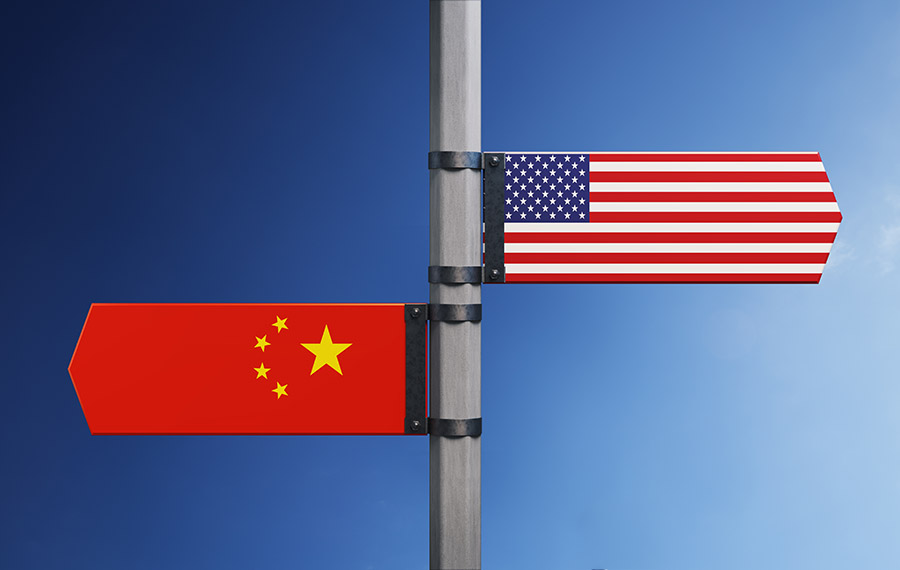
During a recent speech at the Brookings Institution on renewing American economic leadership, Jack Sullivan, the U.S. president’s national security adviser, discussed the concept of the new Washington consensus. This new consensus represents a significant adjustment in the United States’ governance philosophy and will have profound implications for the evolving relationship between China and the United States.
The introduction of the new Washington consensus indicates that the United States has recognized the shortcomings of the old consensus. The original referred to the global political and economic order led by the United States and other Western countries based on neoliberalism. It advocated for policies such as trade and financial liberalization, reduced state intervention and privatization and placed emphasis on democracy as the institutional basis for economic development. From the 1980s onward, the Washington consensus became widely recognized globally and it supported the United States in maintaining its global hegemony.
However, Sullivan declared in his speech that these policies have had a negative impact on the United States in recent years. Market economies, globalization and free trade have “hollowed out” the United States, and economic integration and interdependence have failed to make nations “more responsible and open” or to make the “global order more peaceful and cooperative.” Collectively, these forces have “frayed the socioeconomic foundations on which democracy rests.”
According to Sullivan’s interpretation, the new Washington consensus represents a fundamental reversal of the basic principles of the previous one. It rejects the idea of market omnipotence and advocates for state intervention through “industrial policy.” The new consensus also prioritizes the revitalization of U.S. manufacturing and seeks to “move beyond traditional trade deals to innovative new international economic partnerships” and to replace “trade” with “diversified and resilient supply chains” as the core focus of the U.S. international economic policy.
As a key adviser to the Biden administration on foreign and security affairs, Sullivan can be viewed as reflecting the U.S. government’s deep evaluation of the country’s current challenges to a significant extent. Further, his views embody the latest perspective of the American elite regarding the country’s development path over the past few decades, as well as the profound transformation of its governance philosophy.
The launch of the new Washington consensus indicates a shift toward a more conceptual approach in America’s China policy. In past decades, the Washington Consensus had supported an engagement strategy, seeking to integrate China into the global economy and promote democratization. However, since the Trump administration, the U.S. strategy has shifted toward competition, seeking to suppress China’s development through measures such as sanctions, blockades and containment. Sullivan’s outline of the new consensus further explains existing U.S. policies toward China from a conceptual perspective. He argues, “Economic integration didn’t stop China from expanding its military ambitions” and “a large non-market economy had been integrated into the international economic order in a way that posed a considerable challenge.”
As a result, “reducing dependence,” “de-risking,” and “reducing national security vulnerability” have become the driving forces behind current U.S. policy. America’s international economic policy also needs to adapt to the power competition and security pursuits in the current international environment. Specifically, its China strategy must take into account economic growth rates and potential impacts on national security. The new Washington consensus reflects a zero-sum mentality, with its ultimate aim being to use economic measures to achieve the security goal of containing China.
The launch of the new Washington consensus suggests that China-U.S. relations may be entering a new phase of institutional competition. Significant changes in recent years have sparked discussions on what the two countries are competing for. America’s suppression of China in military, economic, technological and ideological fields has led people to ponder the nature of this competition.
Against this backdrop, the new Washington consensus comprehensively rejects the long-term U.S. national policy, reflecting on “market omnipotence,” “excessive financialization” and “free trade,” and it seeks to implement reforms and reshape China’s development path at an institutional level.
In this context, the United States is anxious about recognizing the socialist system with Chinese characteristics and the prospect of Chinese modernization as a new option for human modernization. This has led to a superficial denigration of China. Moreover, political and economic chaos and profound social problems within the United States have weakened its capability to maintain its global dominance. Consequently, the new generation of U.S. elites, such as Sullivan, will likely seek institutional solutions to govern the country and contain China.
In light of these changes in the U.S. strategy toward China, as reflected in the new Washington consensus, China should remain committed to the principles of mutual respect, peaceful coexistence and win-win cooperation. At the same time, it will need to prepare for a potential institutional confrontation and deeper strategic competition. This will require thinking about how to respond to U.S. competition from a higher level and through a new approach.